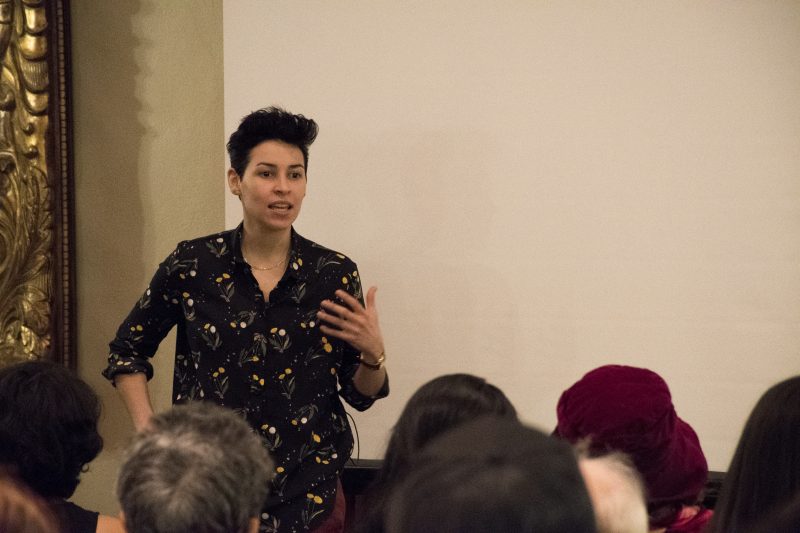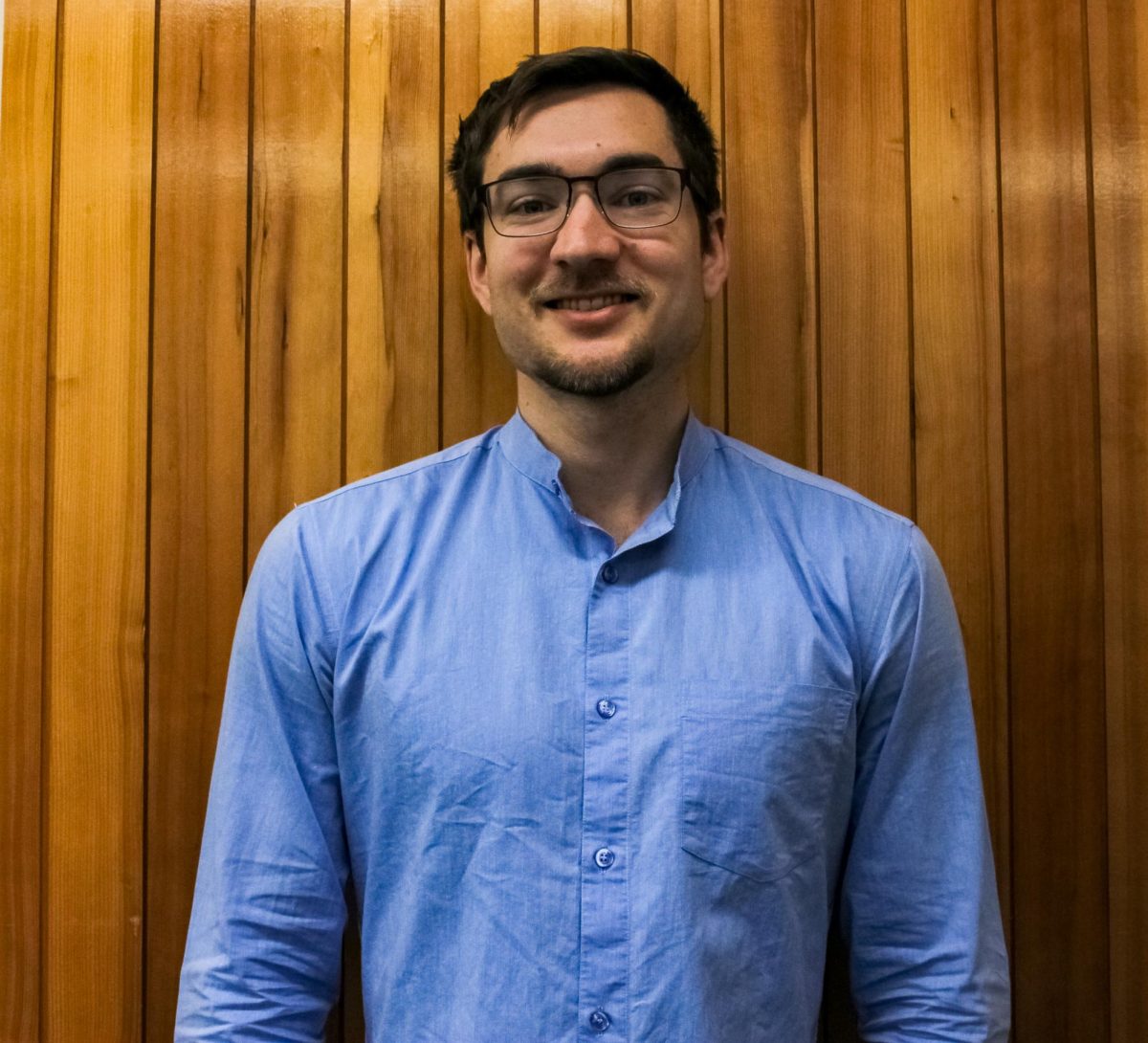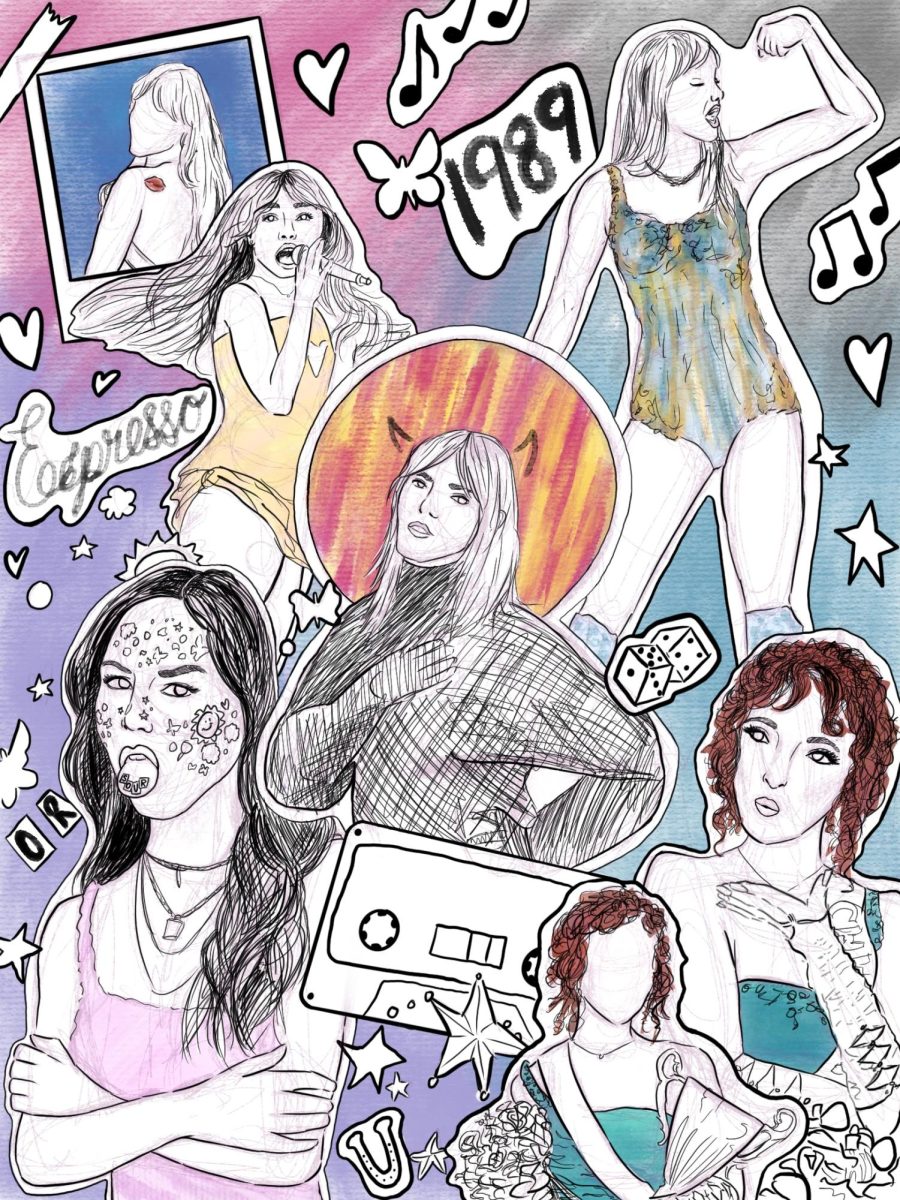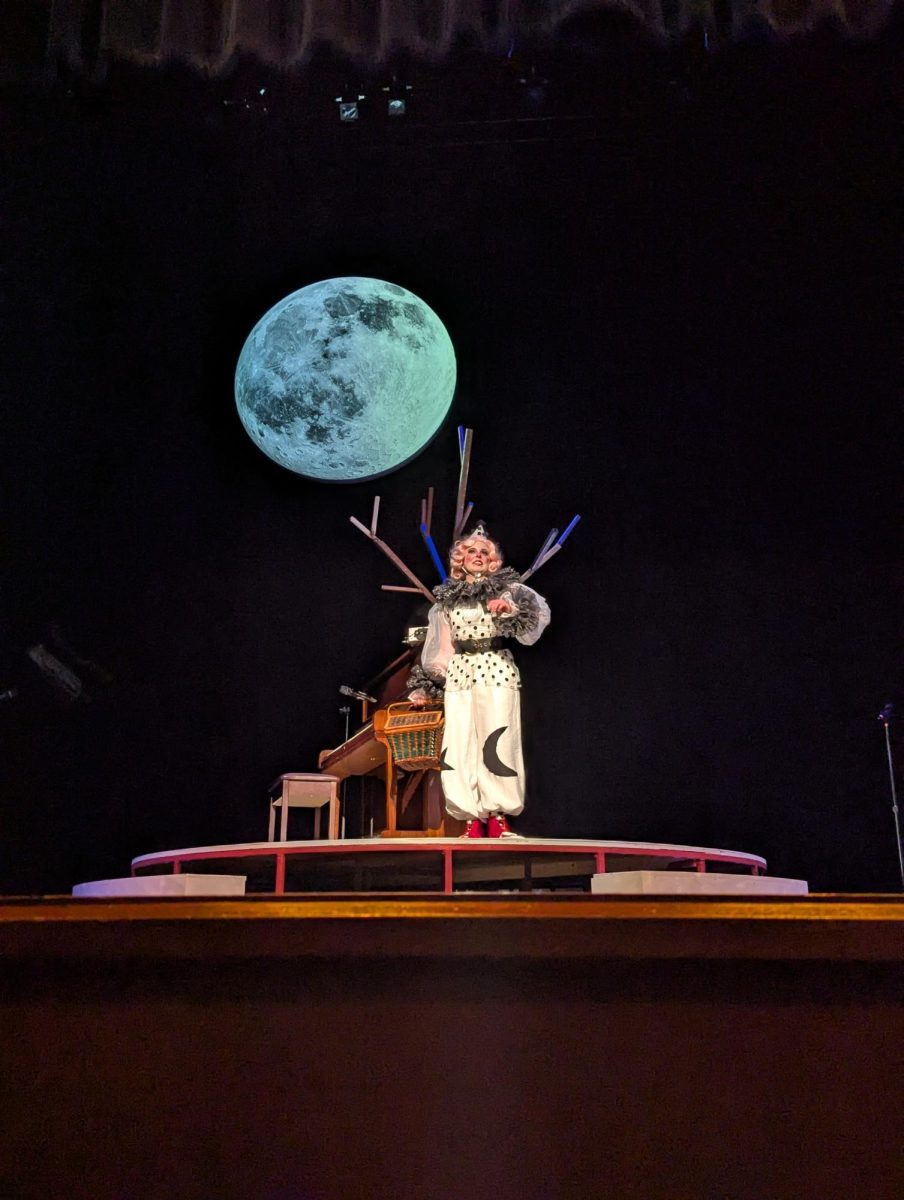“I’ve been thinking about what poetry can do in this time of rupture,” said Denice Frohman, poet and latest performer in the MAS Álvarez Seminar when describing her approach to writing in this political climate. The readings selected for the event all showed poetry’s power in times of adversity, especially the power of humor, which Frohman’s infectious energy put on full display.
A packed house welcomed Frohman to the Holt Center on Thursday, Feb. 1, as she performed her spoken-word poetry. The event tackled ideas of in-betweenness that exists within identity, but it was funny above all else.
“I was not aware of Denise before she was scheduled to perform,” said Simone Washington, sophomore and vice president of Trinity Progressives. “But she made a new fan in me, and I’m sure the whole audience. She was very good at manipulating the scope of her writing, which I think is very hard for writers. We would be outside of the world and floating while she was speaking.”
Coming to this performance as a relative newcomer to Frohman’s work, the excitement and size of the crowd at the Holt Center was surprising at first. Used to the relatively mellow turnout at other campus literary readings, I found myself struggling to even find a seat. This surprise quickly dissipated, though, as Frohman started to perform, telling the already rowdy crowd that she welcomed vocal reactions to her poems, which many members took to heart.
“When I wrote about her in the PRIDE group message, people were instantly excited,” said Andrea Acevedo, senior and president of PRIDE, talking about the familiarity with which many of the attendees had with Frohman. “ ‘Accents’ and ‘Dear Straight People’ are especially popular. Her style is so fast, but she also has a lot of love in her work. She’s talking about a lot of very serious things, but with humor.”
The poems were remarkable in their ability to cover specific experiences from Frohman’s life, often pertaining to her queer, Latina identity, in explosive ways. Her speed of performance helped turn her already funny writing into something akin to rap or stand-up comedy in its delivery.
When Frohman told us she had just performed her last poem, the reaction of the crowd sounded like Beyoncé had left the stage without singing “Single Ladies.” Finally, Frohman relented, starting the first lines of her viral hit “Dear Straight People,” to a long, collective cheer.
“Her poems are just so full of life. We’re used to seeing narratives about families with difficulties, especially related to immigrant narratives, but her poems are full of love for her family, like in her poem ‘Accents,’ ” Acevedo said, referencing Frohman’s poem that deals with the way white Americans often reacted to her mother’s accent. “For me, her work is really important because there’s not that much media with a narrative I feel represents me.”
Others were inspired by the event itself, as well as the poetry that was performed and discussed.
“As a creative writer, if I can use that term, just being in that audience helped me as a writer,” Washington said. “It made me more interested in space and scope, and in navigating spaces.”
The ease with which Frohman interacted with the audience was noticeably natural, as though this was not the first time that she had explained her work to a crowd.
“I think she appeals to people our age because she’s not really afraid to call people out, but also how accessible her work is,” Acevedo said. “She works a lot with kids and at high schools on writing.”
As energetic as it is, Frohman’s writing contains consistent themes of humor, subversion and questioning authority.
“I’ve been trying to write towards reclamation,” Frohman said, referencing this representation but also the sense of space that Washington had commented on. With all of her poems, Frohman talks about aspects of identity in ways that complicate popular narratives, especially with her poem “Celebration of the Piraguero.”
Bringing in laughs with its reverent romance of the male figure selling piragua, another word for raspado, an ice treat sold from street vendors, Frohman portrays the working man as a hero, especially in the spaces of communities threatened by gentrification.
“You can come to the page with an agenda but you are so small,” Frohman said, talking about the unexpected directions writing can take the writer. “You come with an agenda and the paper punches you in the mouth.”







